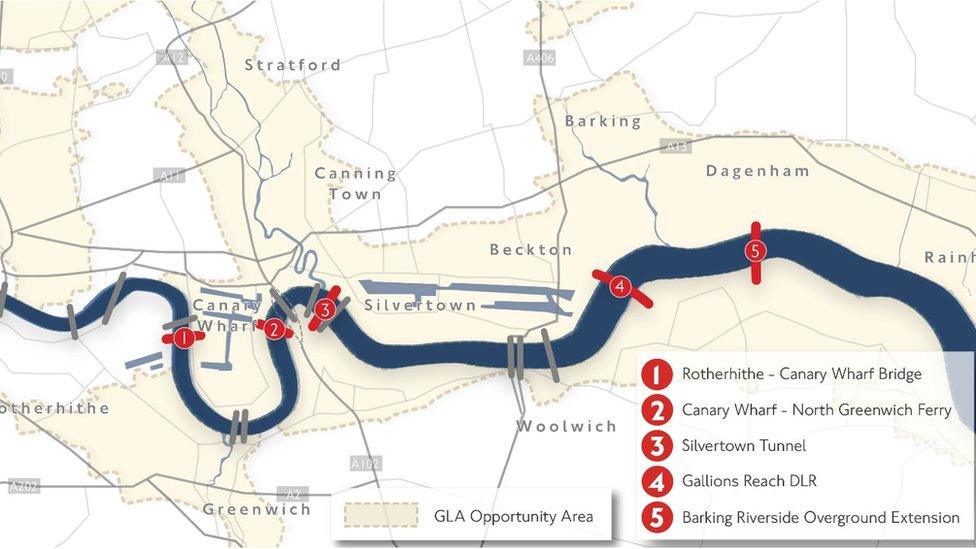Silvertown Tunnel: Work starts on new London river crossing
- Published
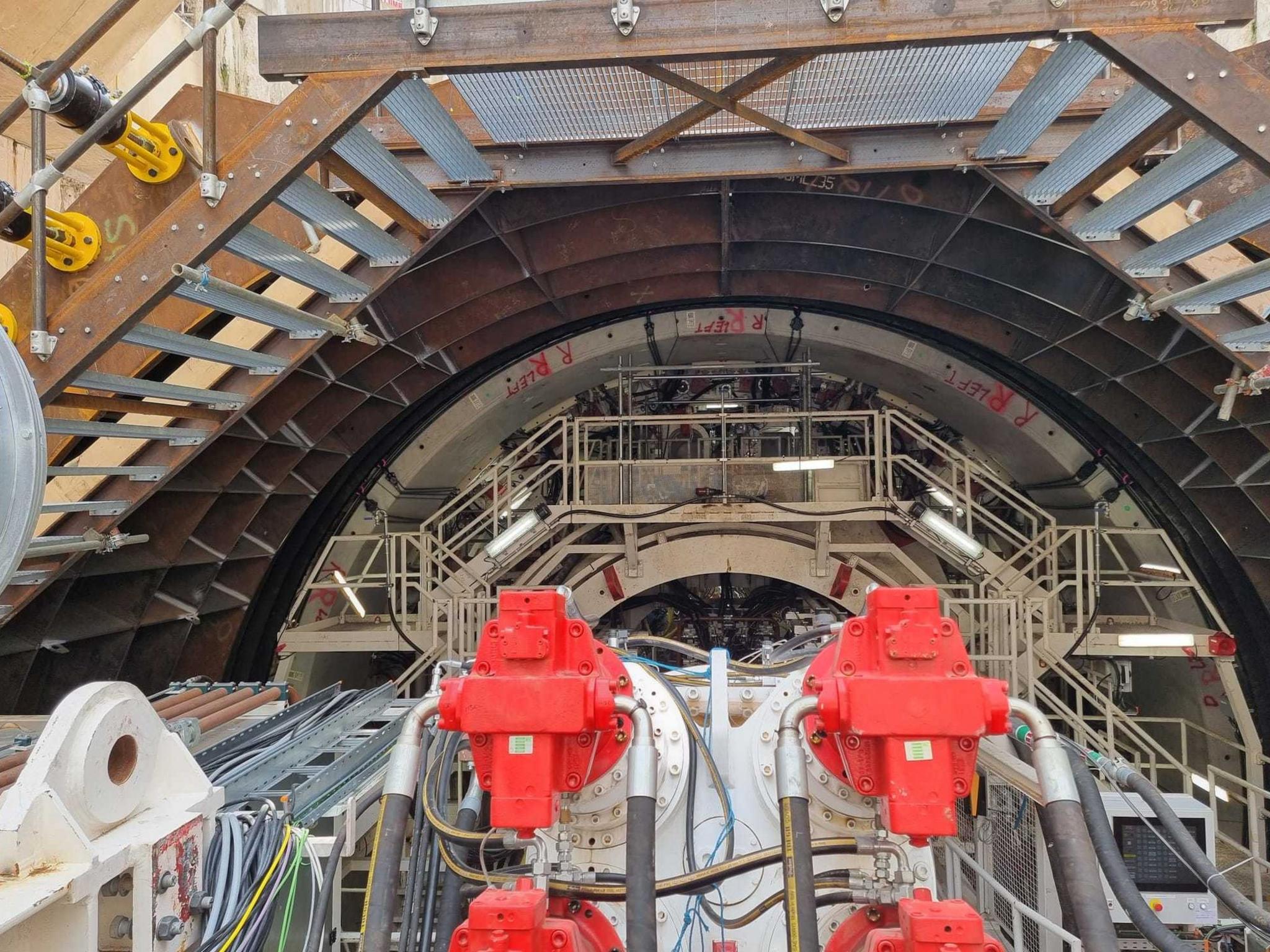
TfL said up to 37 buses an hour would use the new tunnel
Work on a new twin-road tunnel beneath the River Thames in east London has begun.
The Silvertown Tunnel will link the Royal Docks north of the river with the Greenwich Peninsula in the south.
Transport for London (TfL) said the route would cut congestion and ease pressure on the Blackwall Tunnel, but opponents believe it will increase air pollution.
The 1.4km (0.9-mile) tunnel is expected to open in 2025.
Charges will be introduced for using both tunnels once the Silvertown Tunnel opens. The level of charges has not been determined.
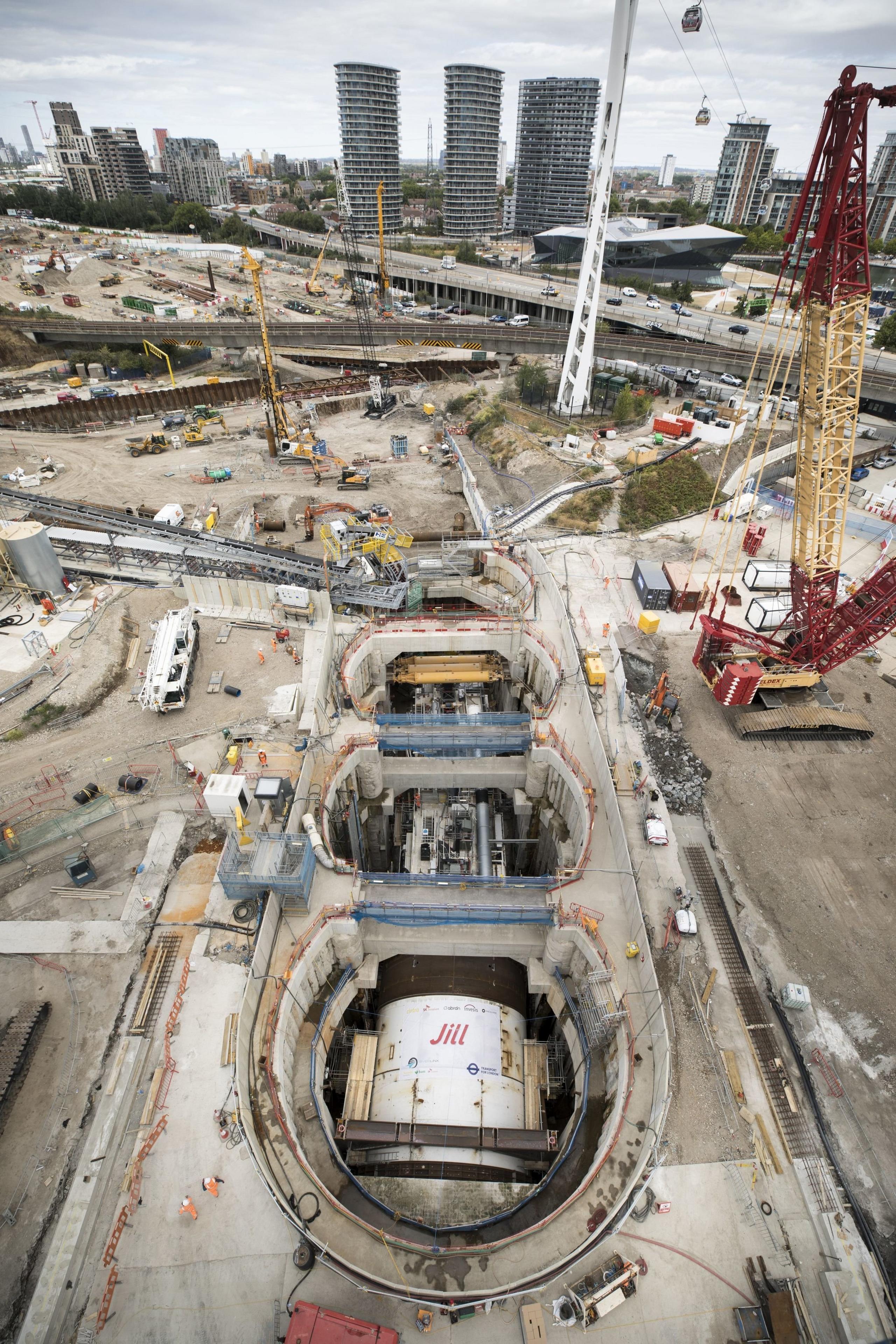
Tolls will be introduced for drivers using both the new crossing and the Blackwall Tunnel
TfL's head of the Silvertown Tunnel programme Helen Wright said: "The start of tunnelling is a huge step forward for this project and we are committed to working hard to ensure that it is delivered with minimal impact to Londoners.
"As well as reducing congestion and providing better cross-river bus opportunities, the new tunnel will also help deliver a wide range of local improvements, including dedicated walking and cycling infrastructure and new landscaping.
"We are working actively on these designs and we hope we can share these with local residents and stakeholders shortly, ahead of starting work on them within the next year."
The Stop the Silvertown Coalition campaign group said the tunnel "will substantially increase London's CO2 emissions at the worst possible time in the ongoing climate emergency".
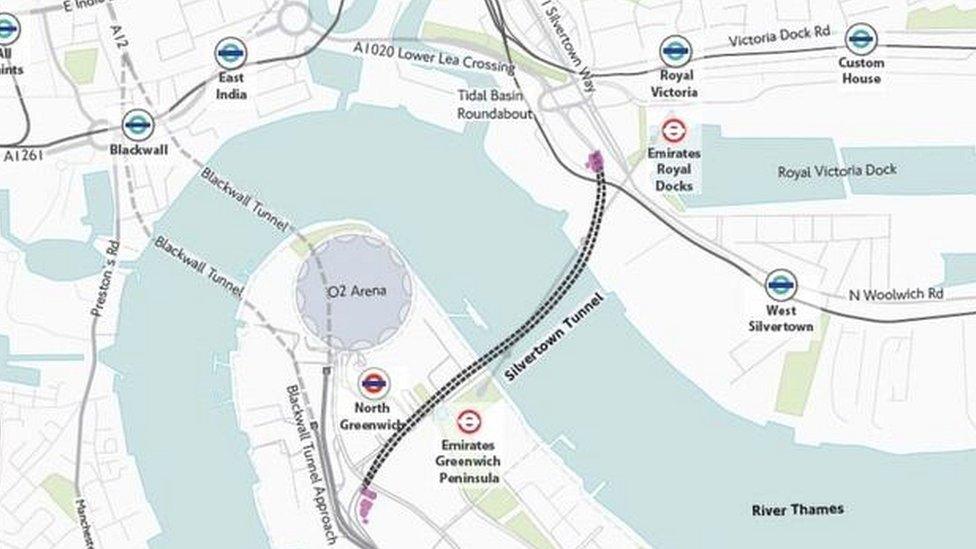
The tunnel will follow a similar route to the Emirates Air Line cable car
Nearly 600,000 tonnes of material will be excavated during the project.
This will be removed via barges on the Thames to minimise construction-related traffic on local roads.
The material will be sent to a former landfill site in Essex as part of a restoration scheme.
- Published11 October 2017
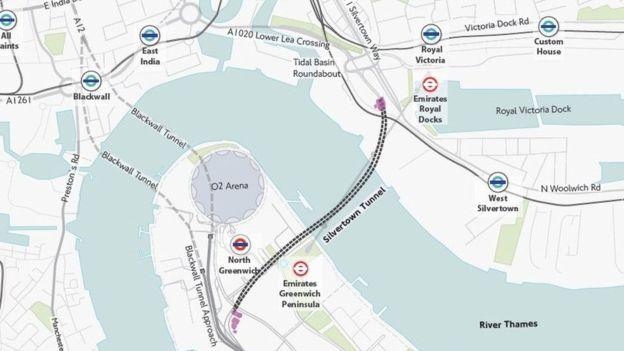
- Published4 October 2016
